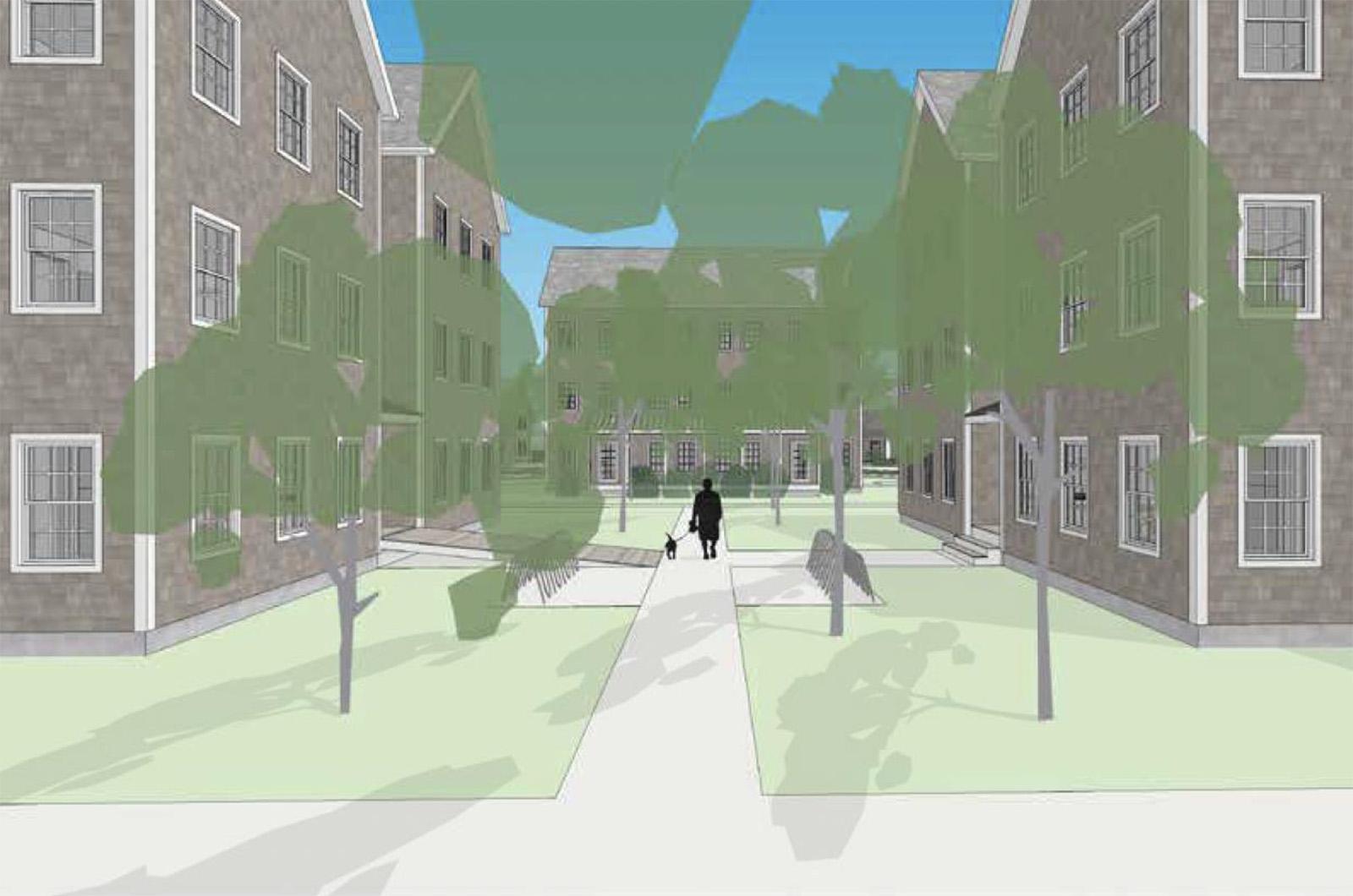A dispute over the permitting process for a large proposed housing project in Oak Bluffs was decided by state officials in Boston late last month, though several legal questions remain.
The state Housing Appeals Committee ruled on April 24 that the town’s zoning board of appeals improperly invoked “safe harbor status” while considering the application for the Green Villa development, which would add at least 100 units of housing to Edgartown-Vineyard Haven Road. The decision sets the course for how the zoning board will move forward with the project’s permitting, though a lawsuit in Dukes County Superior Court over the authority of the Martha’s Vineyard Commission is ongoing.
Under the state’s chapter 40B housing law, developers can skirt some zoning regulations if they are proposing to bring affordable housing to underserved communities. Municipalities can claim “safe harbor” status if the town has hit a certain percentage of affordable housing, giving them the ability to be more restrictive in the permitting process.
The town gained safe harbor status in 2023 after the zoning board approved Southern Tier, a nearby 60-unit affordable housing project. But because Southern Tier, now known under a different name, hadn’t pulled a building permit within one year after its approval, it was no longer counted toward affordable housing percentage –— meaning Oak Bluffs was no longer qualified for safe harbor.
Green Villa developer William Cumming submitted his application to the town in May 2024 on the day after the Southern Tier units fell off the state count.
When the application first came before the zoning board, the board nevertheless invoked safe harbor status. Mr. Cumming appealed the decision to the state Housing Appeals Committee, which ruled in his favor. The town appealed that decision, arguing the safe harbor calculation should be done after the project goes through the Martha’s Vineyard Commission.
The Housing appeals committee sided with Mr. Cumming, saying the consideration is taken when a developer applies to the town.
“The specific date applicable to determining safe harbor eligibility is fixed by the action of filing the comprehensive permit application; it is not changed by subsequent referral of the project to MVC,” wrote Housing Appeal Committee member Lisa Whelan in her April 24 ruling.
Mr. Cumming said the decision confirms that Oak Bluffs isn’t building enough housing under the state 40B statute.
“First the town claimed credit for unbuilt housing. Then the town tried to convince the State they were wrong in the understanding of the State Law calculation,” Mr. Cumming wrote to the Gazette in an email. “The town lost that argument.”
Michael Goldsmith, the town’s attorney, declined to comment on the ruling.
The state Housing Appeals Committee remanded the application to the town zoning board to continue its permitting process. But that has been under contention too by Mr. Cumming.
Attorneys with Green Villa have argued that the commission could run its review concurrently with the zoning board, counter to the usual process where the MVC takes the first crack at projects before the town zoning board.
The argument resurfaces similar disputes from the 1970s, when a developer sought to build a 366-unit housing project in the southern woodlands of Oak Bluffs.
The disagreement over the process triggered a separate lawsuit in Dukes County Superior Court. In October, the town filed a suit trying to preserve the past process of projects first going to the Martha’s Vineyard Commission for approval before coming back to town boards.
That case was put on pause during the Housing Appeals Committee appeal, but could restart again soon. At the same time, Green Villa has been going through the public hearing process with the commission, which reviews large developments that have a regional impact.
Mr. Cumming said the town now needs to decide on how it wants to get more housing built in Oak Bluffs.
“The voters will need to decide whether they want to raise taxes and build the housing as a town, or let others build the affordable housing,” he wrote. “Not building the affordable housing is not a legal option.”







Comments
Comment policy »